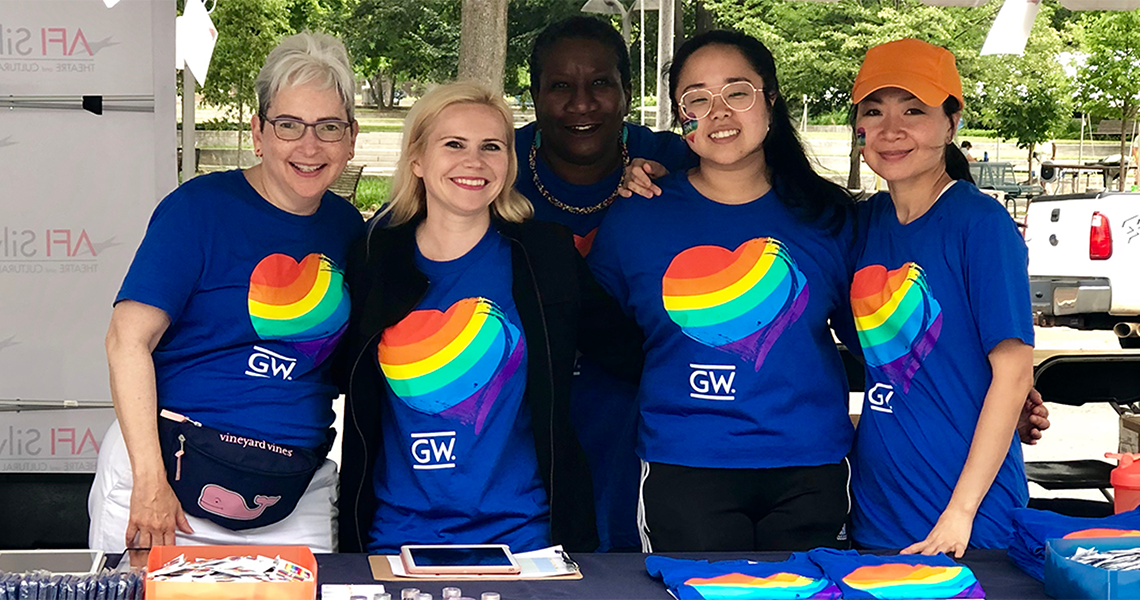The George Washington University (GW) Cancer Center recently celebrated Pride Month, a time to recognize and celebrate lesbian, gay, bisexual, transgender, and queer/questioning (LGBTQ+) communities. During pride, we acknowledge history and the past while looking to the future for opportunities to continue making strides toward equality for people of all identities and backgrounds.
During Pride, it's important to raise awareness about the health needs and disparities in LGBTQ+ communities. For example, many individuals who identify as LGBTQ+ report low levels of trust in providers, fear of discrimination, inappropriate questions, and poor communication (Institute of Medicine, 2015). The LGBTQ+ community also continues to suffer disparities in access to and quality of cancer care. Many providers never receive training on caring for this community, and their health needs often go unaddressed.
Are you interested in learning more about how you or your organization can work to reduce these disparities? The GW Cancer Center offers its online Together, Equitable, Accessible, Meaningful (TEAM) training to educate providers, patients, or anyone interested on health disparities, underserved populations, and strategies to improve health equity in cancer care. If you are interested in learning more about health disparities, but only have a few minutes to spare, check out our TEAM Microsnippet Series on topics such as Defining Intersectionality and Barriers to Health Equity.
For providers and public health professionals, we offer several resources like the Health Equity Toolbox, a guide to fostering cultural sensitivity and equitable care for all. This toolbox includes:
- Information about reducing health disparities
- Practical steps for getting started with social media
- Evidence-based strategies for communicating about health disparities in underserved populations with different audiences
- Sample Tweets, Facebook and LinkedIn posts to tailor for your unique audience
- Additional tools and resources to support your activities
The toolbox also includes adaptable resources, including “I Want You to Know" patient cards to enhance communication between providers and patients. This resource is available in English, Spanish, and simplified Chinese. If your organization wants to let all patients know that they are in a safe, welcoming environment, check out our You Are Welcome Here posters that include English, Arabic, Spanish, Tagalog, French, Chinese and Vietnamese.
If your organization is looking for resources to better serve sexual and gender minority (SGM) patients, be sure to check out our Provider Guide for LGBTQI-Affirming care. This guide describes the health needs of SGM prostate cancer survivors, strategies to provide affirming and culturally sensitive care, and resources like a checklist and sample questions to ask your SGM patients to ensure they receive the best care possible. We also offer our online training, Addressing the Need for LGBTQ-Affirming Cancer Care: A Focus on Sexual and Gender Minority Cancer Survivors and accompanying brochures for survivors for clear, concise information about their care and health needs.
References
Institute of Medicine. (2015). The health of lesbian, gay, bisexual, and transgender people: Building a foundation for better understanding. doi:10.17226/13128




